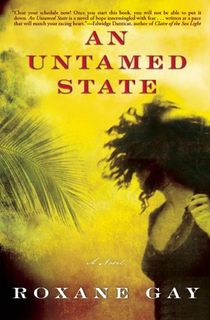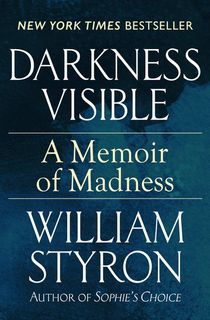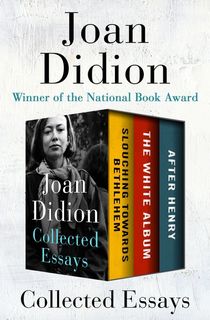Are you a fan of anecdotal reading, but lacking the time to dive into a 300 page memoir? Do you love the specificity of short essays? Or are you looking for a taste of an author’s work before you peek any deeper into their psyche? Then you might consider looking into some essay-length memoirs—think of them as memoir examples, rather than full-fledged books.
Whether you’re hoping to find a piece of writing that makes you feel less alone, or you want to expand your understanding of the human race, these true accounts will stick with you. Here are 10 phenomenal memoir examples you can read online right now for free.
"Me Talk Pretty One Day"
by David Sedaris

Comedian and author David Sedaris wrote the memoir essay “Me Talk Pretty One Day” about his time living in Paris to learn the French language. While matriculating as a middle-aged man has its benefits—"No one will ever again card me for a drink or demand that I weave a floor mat out of newspapers"—it doesn't spare him, or any of his peers, from the abuse of their teacher. Sedaris recounts carrying a special brand of insecurity, tackling the complexity of language and the thrill of being a humorist going toe-to-toe with a stern and scathing professeure.
For collections of Sedaris’ writing, be sure to check out Dress Your Family in Corduroy and Denim and When You Are Engulfed in Flames.
"Age Appropriate"
by Jen Doll
Jen Doll is a freelance journalist—whose credits include articles for The Atlantic, Esquire, and New York Magazine—and author of the young adult novel Unclaimed Baggage. In this anecdotal essay about a summer vacation spent with family, Doll explores what it means to bring your teenage self along into adulthood. Stuck between the frustration of being treated like a child by her parents, and the ever-present desire to run from the strains of adult self-sufficiency, she writes to come to terms with the different selves she houses in the context of her surroundings.
Related: 15 Best Memoirs That Will Change Your Outlook on Life
"The Price of Black Ambition"
by Roxane Gay
In “The Price of Black Ambition,” Roxane Gay interweaves a timeline of her struggles and successes with a frank discussion on the sociopolitical racism inherent in the United States. She speaks on the fact that children of color are often given an inflated sense of “ambition” at a young age, as they must work twice as hard with half as much to achieve opportunities that are more carelessly given to their white peers. And, despite the exceptional amounts of work people of color put in to move forward in life, their efforts are regularly regarded as less than—their presence in “white” circles is considered a fluke or consequence of required diversity. She refers to her ambition as a hunger that can never be satisfied in the current status quo of America.
Gay is most notable for her essay collection Bad Feminist, as well as her fiction novel An Untamed State.
"My Dad Tried to Kill Me with an Alligator"
by Harrison Scott Key

Harrison Scott Key is the author of two memoirs: Congratulations, Who Are You Again? and The World’s Largest Man. Key details one humorous afternoon on Mississippi’s Pearl River, where he believes his brother’s “badass” antics and his father’s gruff and wild nature almost led to his death-by-alligator. Through a consideration of the differences between him and his father, he contemplates how his near-death experience might have shaped his adult life. Remembering his father fondly, Key reconsiders his own path of fatherhood.
Related: 10 Moving Biographies and Memoirs
"Explicit Violence"
by Lidia Yuknavitch
Known for her provocative novels Dora: A Headcase, The Small Backs of Children, and The Book of Joan, Lidia Yuknavitch wrote “Explicit Violence” about the terrible abuses she suffered throughout her lifetime. She talks not just of the physical acts, but the ways in which violence changed her state of mind. Yuknavitch is honest about the ways in which she was made to feel like she deserved the violence heaped upon her—and if how she didn’t deserve it, she should become the kind of person that might deserve it. With a sharp clarity, she condemns the ways in which those who suffer abuses, particularly women, are made to feel as though to talk about it is an inconvenience on those who could never understand.
For more from the life of Lidia Yuknavitch, she has also published the full-length memoir The Chronology of Water.
"Surviving Anxiety"
by Scott Stossel
In the essay “Surviving Anxiety,” journalist and author Scott Stossel opens up about his experience with mental illness. Suffering from anxiety since infancy, Stossel paints a startling and surprising picture of the measures he has to go through to appear unaffected and “normal” due to his internal (and often irrational) worries. In an honest detailing of therapeutic, medicinal, and self-medicinal attempts to get his high-functioning anxiety under control, he expresses the frustrations and constant battle those who suffer from mental illness experience. For a deeper look into Stossel’s experience and the history of anxiety, read his full-length memoir My Age of Anxiety.
"Darkness Visible"
by William Styron

William Styron, acclaimed writer of Sophie’s Choice and The Confessions of Nat Turner, suffered deeply from bouts of depression. In his memoir essay, “Darkness Visible,” Styron is compelled to speak out about his struggle with mental illness after the suicide of Primo Levi. To combat the ignorance and taboo nature surrounding depression, Styron speaks about his own struggles with dark emotions, as well as the difficult path of healing. In the book of the same name, Styron expands upon this essay in a more complete memoir.
Related: William Styron: A Life in Books
"No Labels, No Drama, Right?"
by Jordana Narin
This enlightening and insightful essay comes from Jordana Narin, the winner of the New York Times 2015 Modern Love College Essay contest. Her memoir account exemplifies how new relationships have changed in the modern era, often careening toward an amorphous understanding between two people. She touches on an inclination to avoid not only labels, but vulnerability. Narin outlines how in a situation where the feelings are no less profound than something “real,” people are putting obstacles in their own paths by embracing an aversion to emotional honesty.
"I Was Pregnant, and Then I Wasn't"
by Laura Turner

Laura Turner is a journalist who has written for such publications as the New York Times, The Atlantic, Glamour, and The Verge, with a book in-progress about the cultural history of anxiety. In this tear-jerking short memoir, Turner talks about her recent experience with a miscarriage. Her account encapsulates the worries of burgeoning motherhood put at sudden odds with grief and an overwhelming feeling of suddenly being alone. In an especially poignant and candid moment, Turner writes, “Your life doesn’t change, and that’s the strange part—because it was supposed to.”
"After Life"
by Joan Didion
Following the death of her husband in 2003, renowned essayist, journalist, and author Joan Didion penned “After Life.” In her essay, Didion describes the moments leading up to her husband’s sudden death, and continues on in aching detail about the moments following her realization that he was gone. She describes her “waves” of grief which were at the same time both strange and typical, and reaches for an explanation of how different grief can be when it’s unexpected.
More of Didion’s profound writings include Slouching Toward Bethlehem, The White Album, and After Henry.



